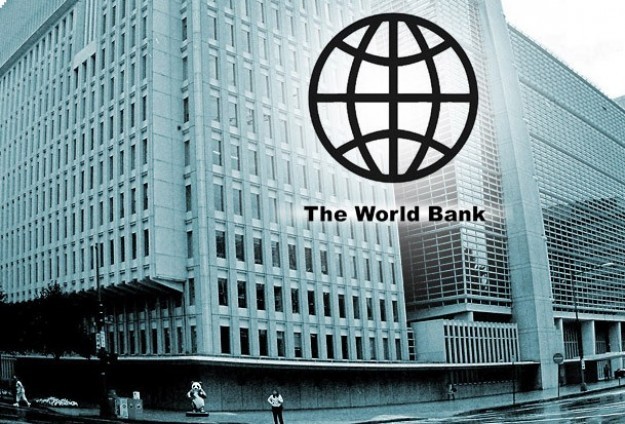Nigeria, other African countries economies remain bleak – World Bank
...GDP to fall to 2.5 per cent in 2023
Emeka Okoroanyanwu
The World Bank has again raised the alarm on the precarious nature of the economy of sub Saharan African countries including Nigeria, saying that amid elusive growth recovery, the outlook still remains bleak.
In it’s latest World Bank Africa Pulse report, the bank said rising instability, weak growth in Africa’s largest economies of Nigeria, South Africa and Angola, and lingering uncertainty in the global economy are dragging down growth prospects in the region.
It said that economic growth in Sub-Saharan Africa is forecast to decelerate to 2.5% in 2023, from 3.6% in 2022.
READ ALSO: http://Tinubu sent people to beg me to drop my probe of him – Atiku
South Africa’s GDP is expected to only grow by 0.5% in 2023 as energy and transportation bottlenecks continue to bite, while Nigeria and Angola are projected to grow at 2.9% and 1.3% respectively, due to lower international prices and currency pressures affecting oil and non-oil activity.
Also increased conflict and violence in the region, the World Bank said, weigh on economic activity, and this rising fragility may be exacerbated by climatic shocks.
In Sudan, the bank said economic activity is expected to contract by 12% because of the internal conflict which is halting production, destroying human capital, and crippling state capacity.
Said the World Bank, “in per capita terms, growth in sub-Saharan Africa has not increased since 2015. In fact, the region is projected to contract at an annual average rate per capita of 0.1% over 2015-2025, thus potentially marking a lost decade of growth in the aftermath of the 2014-15 plunge in commodity prices.
“The region’s poorest and most vulnerable people continue to bear the economic brunt of this slowdown, as weak growth translates into slow poverty reduction and poor job growth,” said Andrew Dabalen, World Bank Chief Economist for Africa.
“With up to 12 million young Africans entering the labor market across the region each year, it has never been more urgent for policymakers to transform their economies and deliver growth to people through better jobs.
READ ALSO: http://African Film City project in Epe to expand Nollywod growth – Gov. Sanwo-Olu
“Despite the gloomy outlook, there are a few bright spots. Inflation is expected to decline from 9.3% in 2022 to 7.3% in 2023 and fiscal balances are improving in African countries that are pursuing prudent and coordinated macroeconomic policies. In 2023, the Eastern African community (EAC) is expected to grow by 4.9% while the West African Economic and Monetary Union (WAEMU) is set to grow by 5.1%.
“However, debt distress remains widespread with 21 countries at high risk of external debt distress or in debt distress as of June 2023. Overall, current growth rates in the region are inadequate to create enough high-quality jobs to meet increases in the working-age population.
“Current growth patterns generate only 3 million formal jobs annually, thus leaving many young people underemployed and engaged in casual, piecemeal, and unstable work that does not make full use of their skills.
“Creating job opportunities for the youth will drive inclusive growth and turn the continent’s demographic wealth into an economic dividend.
“The urgency of the jobs challenge in Sub-Saharan Africa is underscored by the huge opportunity from demographic transitions that we have seen in other regions,” said Nicholas Woolley, World Bank Economist and contributor to the report.
This, he said, would require an ecosystem that facilitates private-sector development and firm growth, as well as skill development that matches business demand.
He said the development of labour-intensive manufacturing seems to be missing in Africa, limiting further effects for the indirect job creation in support services and international trade.
This, Woolley said may be partly due to a lack of capital, which continues to hamper the structural transformation required for good quality jobs.
While the sub Saharan Africa region contributes 12% of the global working age population, it owns only 2% of the global capital stock.
This means people have fewer assets with which to be productive in Sub-Saharan Africa, compared to other regions.
The report also identifies a set of policies to overcome hurdles and unleash job creation in Sub-Saharan Africa.
They included cost-effective private sector reforms, focused on increasing competition, uniform policy enforcement across firm sizes, and regulatory alignment with regional trading partners while governments can also help identify and support early-stage growth of businesses through more inclusive procurement practices and promotion of local businesses abroad.


